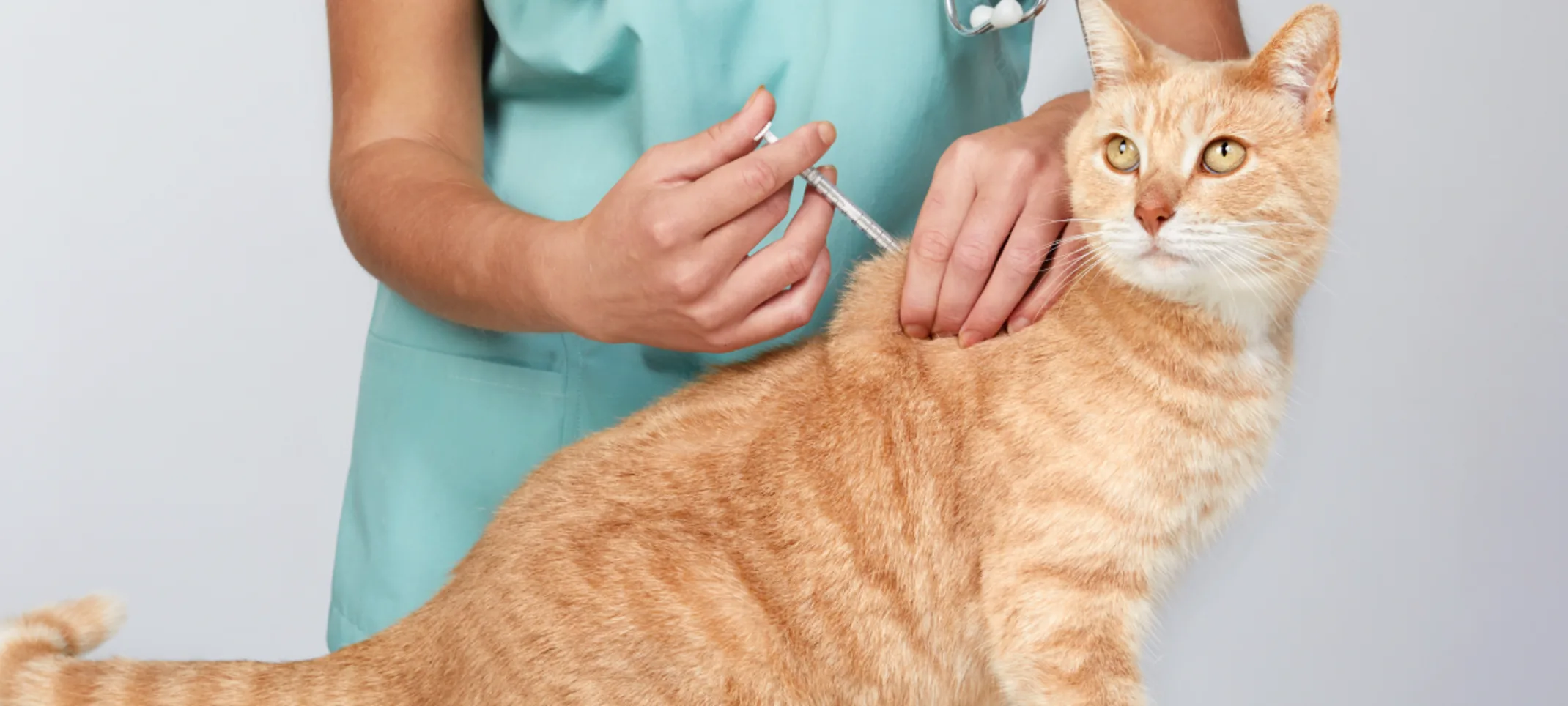Southfort Veterinary Clinic
Vaccinations
Preventative care is an important aspect of maintaining your pet’s health. Proper vaccination is vital in protecting them against harmful diseases.

Overview
We believe that preventative care is one of the most important aspects of maintaining your pet’s health. There are a variety of diseases that affect animals, so proper vaccination of your pet is vital in protecting them from the many types of illnesses to which they are susceptible to.
Why are vaccinations important?
Vaccinations are vital to the health and protection of your pet and serve as a preventive measure in combating viral diseases like Parvovirus, Parainfluenza virus, Distemper, Lyme Disease, Panleukopenia, Feline Leukemia Virus, and Rabies.
When should my pet get vaccinated?
Vaccinations are particularly important for puppies, kittens, and other young animals that have immature immune systems. Veterinary vaccinations generally begin at 6-8 weeks of age and then boostered throughout your pet’s life depending on the vaccine. Our doctors will determine the appropriate vaccination plan for your pet.
How are vaccines administered?
Vaccines help to combat diseases by exposing the pet's immune system to inactive or small amounts of a particular form of bacteria or virus. Vaccines are administered through subcutaneous injection (under the skin), orally, or intra-nasally, depending on the vaccine.
Vaccinations are accompanied by a consultation and examination with our veterinarians to make certain that your pet's condition is stable enough to receive them. Proper and timely administration is necessary to ensure optimal protection.
Vaccinations and Young Pets
Puppies and Kittens receive their first set of vaccinations at 8, 12, and 16 weeks of age. The reason they receive vaccinations at this time is that the mother passes maternal antibodies to her offspring through her colostrum or milk, while they nurse. These antibodies protect the babies until they are old enough to be fully weaned from their mothers.
On occasion puppies and kittens receive vaccinations early. These vaccinations are only given to younger animals when they are at a much higher risk of infection such as in a shelter or rescue, if they did not nurse from their mother, or if they are from a breeder. Vaccinations given early are given in addition to the regular vaccination protocol and should not replace the vaccines that they are due for at 2, 3, and 4 months of age.
While a dog is more likely to become infected in a kennel-like environment (more animals sharing a small, enclosed space), the Bordetella vaccine is designed to increase resistance to upper respiratory infections and is not isolated to kennels. Bordetella is a highly contagious infection that is spread through aerosols and does not require direct contact between animals for it to spread. Due to this, many puppy classes, doggy day cares, boarding facilities and groomers require vaccination prior to seeing your dog.
The feline leukemia vaccine, however, is generally given only to cats that will be going outside or coming into contact with cats who may go outside. This vaccine is only administered to cats up to the age of 5 years old - at this time they have a strong enough immunity as well as a mature immune system to withstand the virus on their own.
Vaccinations and Adult Pets
Once our 'naive' pets have had their full set of vaccinations, they are considered immunized for 1 year following the 3rd vaccination. At Southfort Veterinary Clinic we use a 3-year rabies vaccine that is boosted one year after the initial vaccination and then every 3 years following that.
Any adult pet that has not had vaccinations before should still receive a second set of vaccinations for the DA2PP, RCCP, Leukemia, and Bordetella one month after the very first vaccination. At this point, they may then be re-vaccinated 1 year later and continue on as normal.
Vaccinations and Senior Pets
Once your pet is old enough to be classed as a 'senior' their vaccine schedule may change or stay the same for a few years. As our pets get older their needs may change and it becomes a larger question of overall health and the ability of the body to handle immune triggers such as vaccines versus their level of risk. This can only be determined on an individual basis and should be discussed thoroughly with your veterinarian before deciding to forgo vaccination. While vaccination itself is quite safe, other pre-existing medical conditions may affect the ability of the body to react effectively to the vaccine.
Titre Testing
While vaccine reactions are quite rare it is always a possibility. The most common adverse reaction to vaccinations is an allergic reaction. Whereas injectable antihistamines can be administered prior to the injection of the vaccines, Southfort Veterinary Clinic is happy to say that we also offer vaccine titer testing to ensure that these pets and all of our other patients have safe alternatives to annual vaccination should they like.
